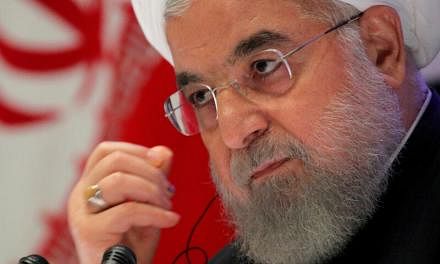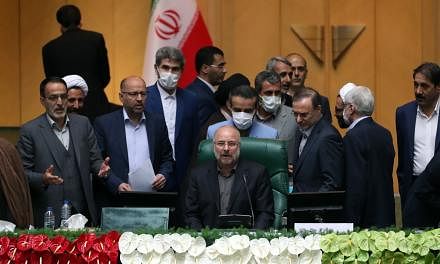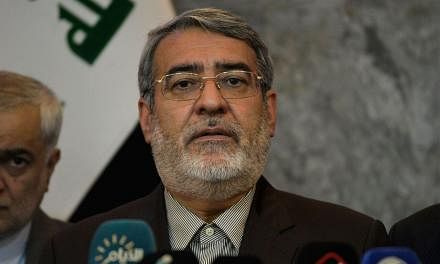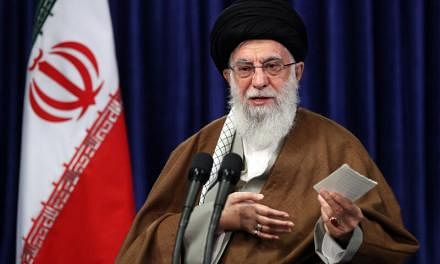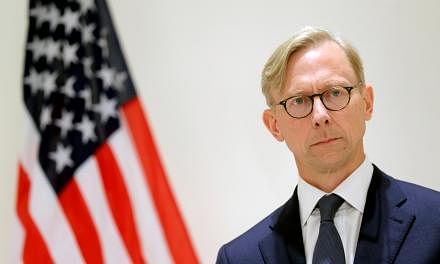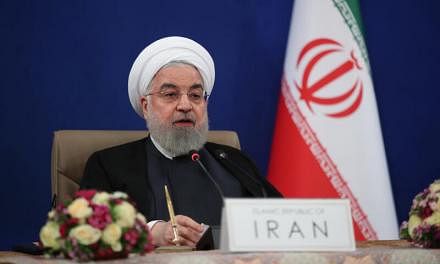WASHINGTON • US Defence Secretary Mark Esper has sought to douse an international outcry by ruling out military attacks on Iran's cultural sites if the conflict with Teheran escalates further, despite President Donald Trump's threat to destroy some of its treasured icons.
Mr Esper acknowledged that striking cultural sites with no military value would be a war crime, putting him at odds with Mr Trump, who insisted that such places would be legitimate targets.
Mr Trump's threats generated condemnation at home and abroad, while deeply discomfiting US military leaders who have made a career of upholding the laws of war.
"We will follow the laws of armed conflict," Mr Esper said on Monday at the Pentagon, when asked if cultural sites would be targeted.
When a reporter asked if that meant "no" because the laws of war prohibit targeting cultural sites, Mr Esper agreed. "That's the laws of armed conflict," he said.
The furore was a classic controversy of Mr Trump's creation, the apparent result of an impulsive threat and his refusal to back down in the face of criticism. When he declared last Saturday that the US had identified 52 potential targets in Iran if it retaliates for the US drone strike that killed top Iranian commander Qassem Soleimani, none of those targets qualified as cultural sites, said an administration official who asked not to be identified.
Nonetheless, when Mr Trump casually said on Twitter that the targets included sites "very high level & important to Iran & the Iranian culture", the resulting uproar only got his back up.
The official said Mr Trump, rather than simply saying that cultural sites were not actually being targeted, decided to double down the next day with reporters flying with him on Air Force One. He scoffed at the idea that Iran could "kill our people" while "we're not allowed to touch their cultural site", saying "it doesn't work that way".
The comments drew protests from Iran and other American adversaries who said they showed that Mr Trump is the aggressor - not just against Iran's government but against its people, its history and its very nationhood.
Some of America's allies weighed in, with British Prime Minister Boris Johnson issuing a statement warning against targeting antiquities.
Mr Trump's remarks unsettled some of his allies, who considered them an unnecessary distraction at a time when he should be focusing attention on Iran's misdeeds rather than promising some of his own.
"We're not at war with the culture of the Iranian people," said South Carolina Republican Senator Lindsey Graham, one of the President's staunchest supporters in Congress. "We're in a conflict with the theology, the ayatollah and his way of doing business."
Iran, home to one of the most storied ancient civilisations, has 22 cultural sites designated on the World Heritage List by Unesco, the United Nations cultural organisation.
Unesco director-general Audrey Azoulay said on Monday that Iran and the US must observe a convention obliging states to preserve cultural sites.
She said both had signed a 1972 convention prohibiting states from taking "any deliberate measures which might damage directly or indirectly the cultural and natural heritage" of other states.
The US has been a leader in condemning rogue nations and groups that destroy antiquities, including the Islamic State in Iraq and Syria militant group's destruction of sites in Mosul, Iraq, and Palmyra, Syria, as well as the Taleban's demolition of the Bamiyan Buddhas in Afghanistan in 2001.
NYTIMES, AGENCE FRANCE-PRESSE


